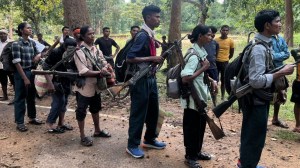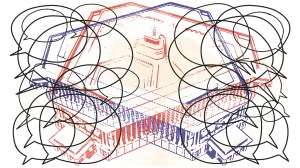Rein in the town bully
While India was feeling self-assured, Pakistan conducted its nuclear tests. The debate about the actual number of Pakistani tests and their ...

While India was feeling self-assured, Pakistan conducted its nuclear tests. The debate about the actual number of Pakistani tests and their quality in comparison to the Indian tests is really irrelevant if one views the current nuclear situation in macro-level strategic terms. The ground realities are: a nuclear strategic standoff between India and Pakistan, a China-Pakistan strategic and political nexus and the fact that the international reaction, while critical of both India and Pakistan, is less critical of Pakistan. Managing relations with Pakistan and China are now especially proximate challenges to India8217;s foreign policy.
Given the inevitable negative perceptions about India in these two countries generated by our nuclear tests, one does not expect the establishment of a warm relationship. But it is essential that mutually negative attitudes are tempered by sobriety and a realistic endeavour to re-establish a working relationship. We have not focused on dealing with the critical fallout in ameasured and structured manner. In some respects we have, wittingly or otherwise, exacerbated tensions. China8217;s strongly critical reactions have been a shift from its usual stance 8212; that every country has the sovereign right to structure its defence capacities according to its own assessments. Even after signing the NPT, China had not been specifically critical of India. The Chinese reaction is a direct result of the provocative statements by our Defence Minister.
A sequential description of China8217;s reactions to our nuclear tests would be relevant. China8217;s reaction was mildly critical and tempered for nearly three days after the tests. After having reacted strongly to Fernandes8217; statement, they were assessing whether he was reflecting his own view He had said that he was voicing his private views. But when Prime Minister Vajpayee, in his communication to President Clinton, specifically named China, it concluded that Fernandes8217; views reflected a change in India8217;s policy stance. This impression wascompounded by Fernandes announcing in Calcutta that India will not redeploy or reduce its forces on the Line of Actual Control, nor follow through with the confidence-building measures in view of the Chinese threat.
This statement was perceived by China as a rejection of the entire terms of reference of the Sino-Indian Joint Working Group which was agreed upon between Rajiv Gandhi and Deng Xiaoping, which were to be the basis on which China and India would deal with the boundary question. The first strong criticism came in the statement of the Chinese Ministry of Foreign Affairs on May 14 in which the Indian tests were described as displaying quot;an outrageous contempt for the common will of the international communityquot;. The statement also described India8217;s perception of China as a a gratuitous accusation. The second reaction came in the editorial of the People8217;s Daily on May 15 which, while repeating the Chinese Foreign Office statement of May 15, found particularly abominable the fact that India had madeChina a scapegoat in its unbridled zest for nuclear development. Significantly, halfway through this editorial, the People8217;s Daily called on India to cherish the hard-won achievements in Sino-Indian relations and to stop harming bilateral relations. In conversation, Chinese diplomats clarified that Chinese reactions were not so much to the tests themselves but the policy stances articulated in the government8217;s statements. China raised the ante with another Foreign Office statement three days later, accusing India of occupying 90,000 square kilometres of Chinese territory and of launching an aggression against China in 1962, reverting to the rhetoric of 1959-62. Chinese Foreign Minister Tang Jiaxuan, speaking to Sri Lankan Foreign Minister Lakshman Kadirgamar in Beijing on May 25, urged that more pressure be brought to bear on India. This does not mean that we should not be alert to China8217;s military capacities and strategic postures. But it was not necessary to exacerbate tensions and disrupt the process ofnormalisation. Pramod Mahajan8217;s quot;ulta chor kotwal ko dantequot; statement is a patent example of misplaced candour.
The chemistry of our relations with Pakistan is obviously different. Our statements reacting to the Ghauri test and Pakistan8217;s articulated nuclear weapons threat were generally legitimate, but could have been more sober. But what took the cake was Madanlal Khurana8217;s town bully-like statement about India8217;s preparedness for a fourth war with Pakistan, asking Pakistan to name the place and the date. Also, our Home Minister need not have given advance warning to Pakistan about our intention of being more decisive in Jammu and Kashmir. We should do what is necessary without making announcements which give Pakistan a handle to garner international support.
The points in the fallout on Indo-Pak relations that we have to cope with are the following: Pakistan8217;s conventional military capacities are bound to show a quantum increase with US assistance. The international community would be less criticallyjudgmental about Pakistani support to secessionism in Jammu and Kashmir. Nawaz Sharif has publicly said that he expects an increasingly assertive Indian military posture, to which Pakistan would have to react. Foreign Minister Gohar Ayub Khan has formally declared that he does not see any prospects of a revival of bilateral dialogue. We should issue a statement responding to the Chinese Foreign Office spokesman8217;s statement suggesting a revival of dialogue for normalisation, underlining our willingness to resume the Joint Working Group discussions. We must also send a special envoy to Beijing. We may even suggest specific dates for the next JWG meeting Maybe some such message has been carried back by Ambassador Nambiar to Beijing after his consultations in Delhi. To Pakistan, we must make a unilateral no-first-use declaration. We must undertake a purposeful diplomatic and publicity campaign in the international community underlining that we have no aggressive intentions against Pakistan. Vajpayee shouldrepeat these assurances to Nawaz Sharif when they meet at the SAARC summit in Colombo in July If Sharif can talk bilaterally at all, given his domestic compulsions. Anyway, a significant portion of Vajpayee8217;s statement at the SAARC summit should be devoted to explaining our stance without country-specific accusations, and conveying general assurances about India8217;s non-aggressive, non-intrusive stance. The requirement is sobriety and reasonableness, not smug or assertive jingoism.
- 01
- 02
- 03
- 04
- 05































